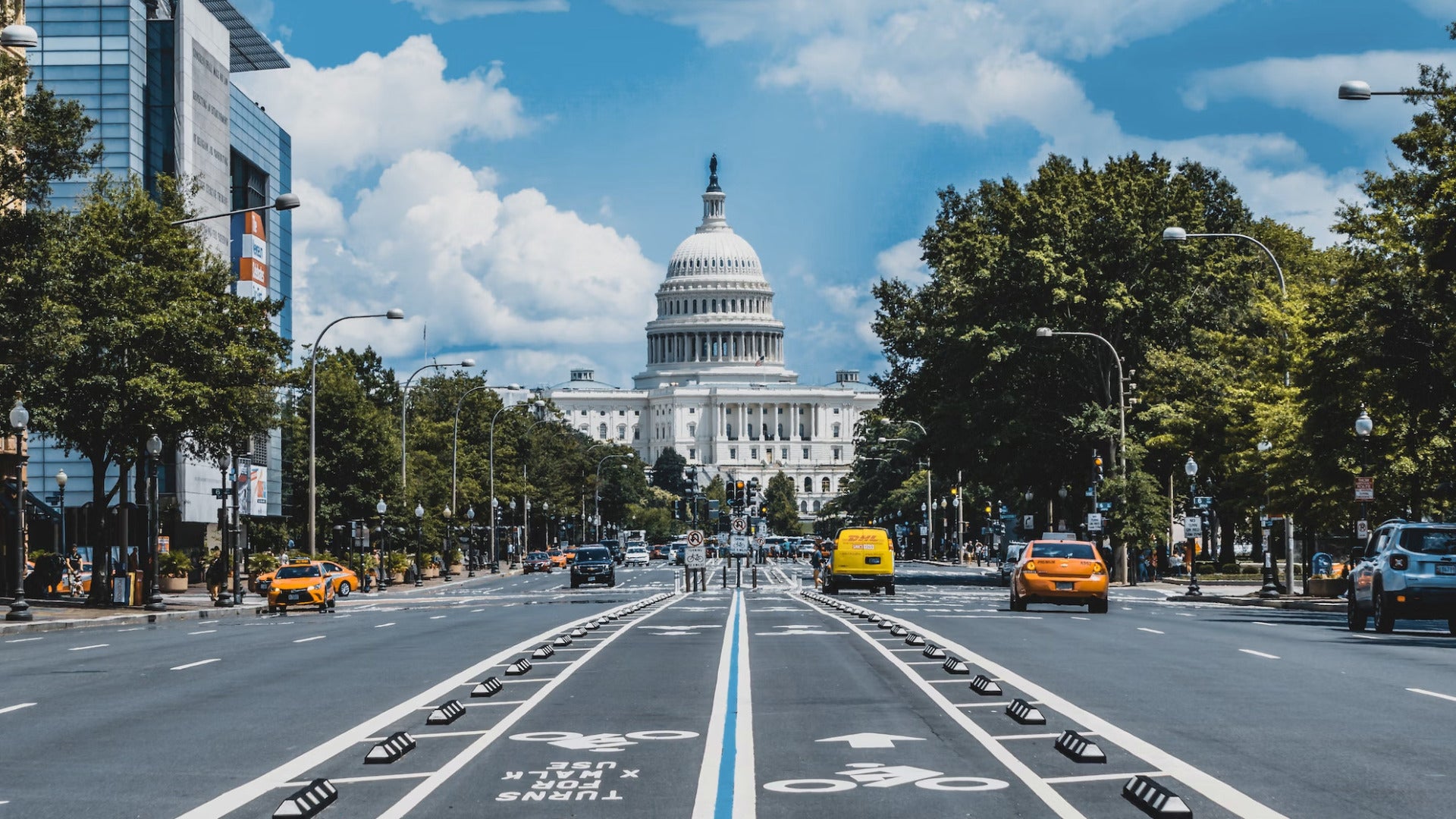State and local jurisdictions are preparing for a general election while facing uncertainty about the public health conditions in November. On Tuesday, eight states and the District of Columbia held primaries, requiring many voters to show up to the polls during both a pandemic and widespread political protests. Given the potential risks associated with in-person voting, mail-in ballots may be the first choice for more citizens than ever before. Officials face political and logistical pressure to execute a voting process that is secure, trusted, and safe. Hear from a state election official and voting experts on the opportunities and obstacles to overcome.
We are joined by:
- Kim Wyman, Secretary of State, Washington
- Dale Ho, Director, Voting Rights Project, ACLU
- Ben Adida, Executive Director, VotingWorks
- Garrett Graff, Director, Cyber Initiatives, Aspen Digital
 Kim Wyman is Washington’s 15th Secretary of State. First elected in 2012, she is serving her second term and is only the second female Secretary of State in Washington’s history. Prior to being elected to this office, Kim served as Thurston County Elections Director for nearly a decade and was elected Thurston County Auditor from 2001-2013. Secretary Wyman is a graduate of California State University, Long Beach and holds a Master’s Degree in Public Administration from Troy State University. She was awarded an Honorary Doctorate in Leadership from City University, Seattle in 2015. Kim is a Certified Elections and Registration Administrator (CERA) from The Elections Center and Auburn University, and is a Washington State Certified Election Administrator. Kim and her husband, John, came to Washington when he was assigned to the 2nd Ranger Battalion at Fort Lewis after being stationed in Ansbach, Germany. They reside in Thurston County with their two children.
Kim Wyman is Washington’s 15th Secretary of State. First elected in 2012, she is serving her second term and is only the second female Secretary of State in Washington’s history. Prior to being elected to this office, Kim served as Thurston County Elections Director for nearly a decade and was elected Thurston County Auditor from 2001-2013. Secretary Wyman is a graduate of California State University, Long Beach and holds a Master’s Degree in Public Administration from Troy State University. She was awarded an Honorary Doctorate in Leadership from City University, Seattle in 2015. Kim is a Certified Elections and Registration Administrator (CERA) from The Elections Center and Auburn University, and is a Washington State Certified Election Administrator. Kim and her husband, John, came to Washington when he was assigned to the 2nd Ranger Battalion at Fort Lewis after being stationed in Ansbach, Germany. They reside in Thurston County with their two children.
 Dale Ho is the Director of the ACLU’s Voting Rights Project, and supervises the ACLU’s voting rights litigation. Dale has testified on election law issues before Congress, and in various state legislatures around the country. He is also an adjunct clinical professor of law at NYU School of Law. Dale is a frequent commentator on voting rights issues, appearing on television programs including CNN; The Rachel Maddow Show and All-In with Chris Hayes; has written opinion pieces for the New York Times; and is widely published on redistricting and voting rights in law reviews including the Yale Law Journal Forum and the Harvard Civil Rights-Civil Liberties Law Review. Prior to joining the ACLU, Dale was Assistant Counsel at the NAACP Legal Defense Fund; an associate at Fried, Frank, Harris, Shriver & Jacobson LLP; and a judicial law clerk, first to Judge Barbara S. Jones, U.S. District Court for the Southern District of New York, and then to Judge Robert S. Smith, New York Court of Appeals. He is a graduate of Yale Law School and Princeton University.
Dale Ho is the Director of the ACLU’s Voting Rights Project, and supervises the ACLU’s voting rights litigation. Dale has testified on election law issues before Congress, and in various state legislatures around the country. He is also an adjunct clinical professor of law at NYU School of Law. Dale is a frequent commentator on voting rights issues, appearing on television programs including CNN; The Rachel Maddow Show and All-In with Chris Hayes; has written opinion pieces for the New York Times; and is widely published on redistricting and voting rights in law reviews including the Yale Law Journal Forum and the Harvard Civil Rights-Civil Liberties Law Review. Prior to joining the ACLU, Dale was Assistant Counsel at the NAACP Legal Defense Fund; an associate at Fried, Frank, Harris, Shriver & Jacobson LLP; and a judicial law clerk, first to Judge Barbara S. Jones, U.S. District Court for the Southern District of New York, and then to Judge Robert S. Smith, New York Court of Appeals. He is a graduate of Yale Law School and Princeton University.
 Ben Adida is the Executive Director of VotingWorks. His passion is using technology to empower individuals. Ben has extensive experience in voting systems, identity & payments, health IT, security & privacy, and Web architecture. He has developed free software for more than 20 years and Web software for more than 25 years. He is a Board Member at Creative Commons. Previously, Ben was VP of Engineering at Clever, Director of Engineering at Square, Director of Engineering at Mozilla, Research Faculty at Harvard Medical School / Children’s Hospital Boston, and research fellow with the Center for Research on Computation and Society at Harvard. Ben co-founded three bootstrapped startups: ArsDigita (1998), OpenForce (2000), and Webdash (2005). He received his PhD from MIT’s Cryptography and Information Security group.
Ben Adida is the Executive Director of VotingWorks. His passion is using technology to empower individuals. Ben has extensive experience in voting systems, identity & payments, health IT, security & privacy, and Web architecture. He has developed free software for more than 20 years and Web software for more than 25 years. He is a Board Member at Creative Commons. Previously, Ben was VP of Engineering at Clever, Director of Engineering at Square, Director of Engineering at Mozilla, Research Faculty at Harvard Medical School / Children’s Hospital Boston, and research fellow with the Center for Research on Computation and Society at Harvard. Ben co-founded three bootstrapped startups: ArsDigita (1998), OpenForce (2000), and Webdash (2005). He received his PhD from MIT’s Cryptography and Information Security group.
 Garrett Graff, a director for cyber initiatives for the Aspen Digital program at the Aspen Institute, is an award-winning journalist who has spent nearly a decade covering national security. He has an extensive background in journalism and technology, including working as Governor Howard Dean’s first webmaster, helping to launch an internet strategy consulting firm, and, in 2005, becoming the first blogger admitted to cover a White House press briefing. More recently, as a journalist, he’s been editor of both Washingtonian and POLITICO Magazine—where he helped lead the magazine to its first National Magazine Award—and writes regularly for publications like WIRED and Bloomberg BusinessWeek. He has authored multiple books on both technology and national security, including, most recently, Raven Rock, about the government’s Cold War Doomsday plans, which was published in May 2017, as well as a 2011 history of the FBI, The Threat Matrix.
Garrett Graff, a director for cyber initiatives for the Aspen Digital program at the Aspen Institute, is an award-winning journalist who has spent nearly a decade covering national security. He has an extensive background in journalism and technology, including working as Governor Howard Dean’s first webmaster, helping to launch an internet strategy consulting firm, and, in 2005, becoming the first blogger admitted to cover a White House press briefing. More recently, as a journalist, he’s been editor of both Washingtonian and POLITICO Magazine—where he helped lead the magazine to its first National Magazine Award—and writes regularly for publications like WIRED and Bloomberg BusinessWeek. He has authored multiple books on both technology and national security, including, most recently, Raven Rock, about the government’s Cold War Doomsday plans, which was published in May 2017, as well as a 2011 history of the FBI, The Threat Matrix.

